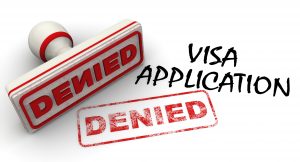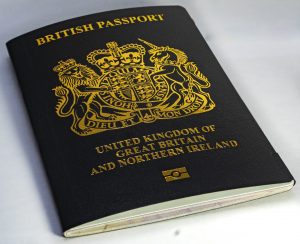
UK Spouse Visa accommodation requirement
The UK Spouse Visa is just one of many categories belonging to the family migration route. What this
means is that applicants are required to satisfy numerous immigration requirements, including the
accommodation requirement as outlined in Appendix FM.
But what are the Partner Visa accommodation rules? Let’s take a look.
What is the UK Married Partner Visa accommodation requirement?
Essentially, married couples who intend to live in Britain must prove that they have adequate
accommodation and living space that is compliant with the country’s housing and living standards.
As a general rule of thumb, this means that the property must:
- Be owned or occupied exclusively by the applicant
- Has enough bedrooms to accommodate any dependents such as children
- Not be obtained through public funds
- Not contravene public health and safety regulations
How to prove exclusive occupation
Spouse Visa applicants are required to prove that their prospective property in the UK is to be
owned or occupied exclusively by the couple. However, if you’re moving into a house share, house of multiple occupancies or with other family members, you don’t need to own the entire property in order to meet the accommodation requirement.
Here, you will only need to prove that you are occupying at least one suitable bedroom and that
your addition to the household will not lead to overcrowding. Applicants can prove that they exclusively occupy the space by providing evidence of rental or mortgage agreements and/or written statements by other occupants in the house, if applicable.
What are the ‘room standards’ for the Spouse Visa accommodation requirement?
Part and parcel of the UK Spouse Visa accommodation requirement are to ensure that occupants are
not overcrowded in unsuitable properties. This requirement is specifically included to ensure that
migrants who come to the UK do not end up in cramped, overcrowded, and/or substandard housing
arrangements. The Housing Act 1985 stipulates a ‘room standard’ test which essentially assesses the number of people needing a bedroom which is split dependent on age and gender.
The rules are:
- A child under the age of 1 does not could as a person and does not need their own bedroom
- A child aged 1-10 counts as ‘half a person’ and can share a bedroom
- Couples can share a room
However, it is important to note that occupants of the opposite sex and are aged over 10 years old
cannot share a room and must have their own bedrooms. For instance, if you have two 11-year-old
children of the opposite sex.
This also means children between the age 1 and 9 are able to share a bedroom, but theirs must be
separated from the couple/adult bedrooms.
What counts as a room?
The room can only be considered suitable for an occupant if the floor area is larger than 50 square
feet. However, spare rooms and living rooms that can reasonably be converted into a bedroom can also
count as a room if you need the space. Kitchens and bathrooms are not counted here.
Exceptions the overcrowding rule
There are, however, a handful of circumstances in which applicants can enjoy an exception to the
overcrowding rule. This includes situations where alternative accommodation arrangements need to be made but have not yet begun. For example:
- If you have a new-born baby
- If you have a child who is turning 11
- If you have a friend/family member staying in the house temporarily
- If the local authority has granted permission, such as ‘licenced overcrowding’
How to prove to UKVI that your accommodation is suitable
As you will need to prove that your accommodation in the UK is ‘adequate’, you need to submit
evidence of your living arrangements.
You can submit any of the following documents:
- Tenancy agreement
- A signed and dated letter from the landlord/estate agent
- Mortgage agreement
- A signed and dated letter from the mortgage provider
- Title deeds (which can be obtained by UK Land Registry)
- The floor plan/blueprint of the property
- The property listing when it was advertised online
- A cover letter detailing the property
- Evidence of a Housing Report that has been signed and dated
- A written statement from a friend/family member who owns the property and will be
sharing the space with you and your partner
How can your London immigration lawyers help?
Our immigration lawyers here at 1 Absolute Advisor offer comprehensive Spouse Visa advice
packages. What this means is that we can help you to create an airtight portfolio of evidence and
help you throughout your Spouse Visa UK journey.
Proving that you can meet the accommodation requirement is essential for the success of your visa
application. Yet too many applicants fail to satisfy the requirement and underestimate how much
evidence is really required. Take a look at our advice on the top 10 mistakes to avoid with your Spouse Visa application too, as the accommodation requirement is just one aspect of the many Married Partner Visa immigration rules. If you want to improve your chances of a visa success, call our immigration lawyers today on 0207 993 6762 for a free case consultation.



















